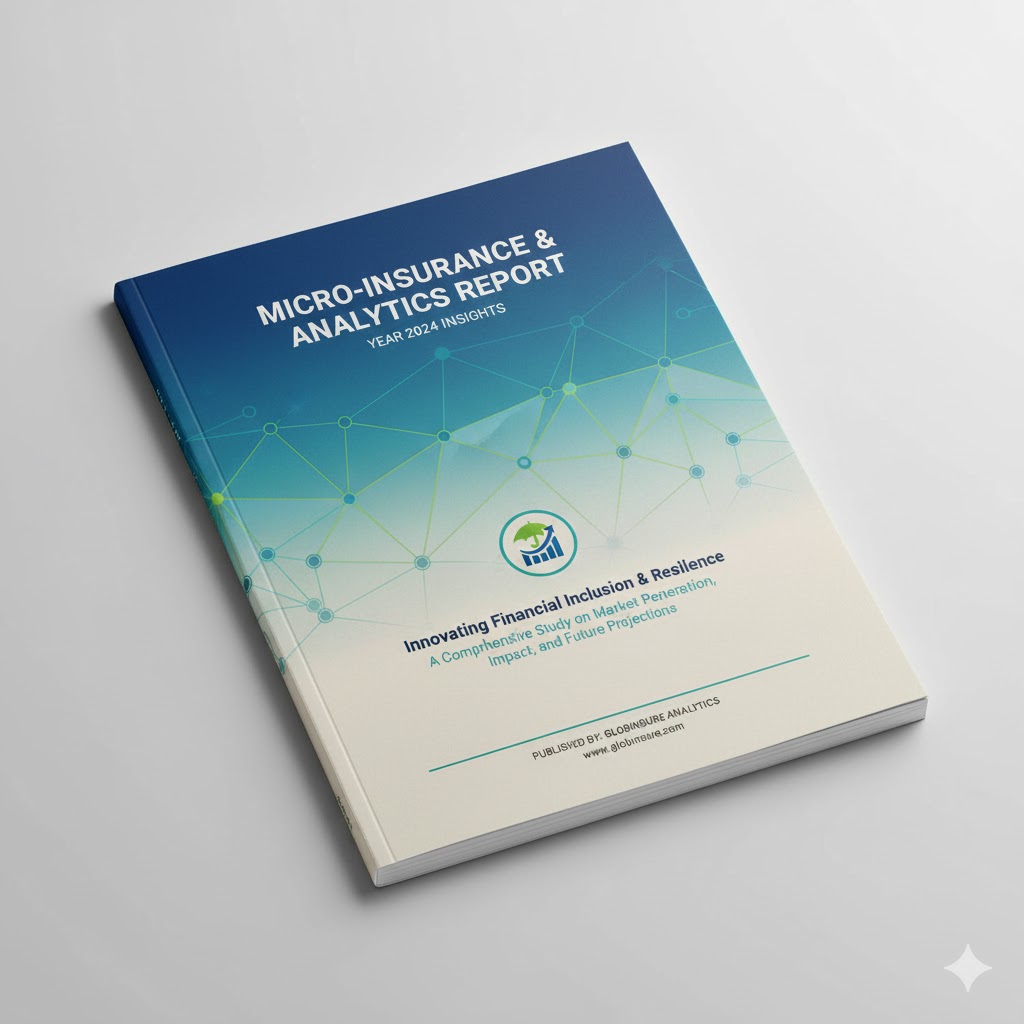Displaying 1 - 15 of 20

Case brief: ALM SEGUROS
Case brief: ALM SEGUROS. This presentation introduces ALM Seguros as one of the pioneering microinsurance companies in Brazil. The company focused on delivering accessible life and funeral insurance to underserved communities, building trust through affordable premiums and simplified claims. The case illustrates how early entrants in the Brazilian market paved the way for inclusive insurance by aligning product design with local needs and regulatory frameworks.

Case brief: FASECOLDA
Case brief: FASECOLDA. This entry presents the activities led by the Federation of Colombian Insurers (Fasecolda) to strengthen inclusive insurance in Colombia. It covers efforts in financial education, technical training, regulatory engagement, and the promotion of innovative products for underserved segments. The case demonstrates how institutional leadership and coordinated action have advanced capacity building and inclusion in the Colombian insurance sector.

Case Brief: Field Accident Insurance - PROFIN Foundation
Field accident insurance – PROFIN Foundation. This case highlights a specialized microinsurance product developed in Bolivia to cover medical expenses resulting from injuries during official soccer, basketball, and volleyball matches. Distributed through sports associations, the product is tailored to the needs of amateur athletes and addresses a previously uninsured risk segment. It showcases how inclusive insurance can be adapted to community-based distribution and activity-specific protection.

Case Brief: Field Accident Insurance - PROFIN Foundation
Since 2018, Bolivia's PROFIN Foundation has offered a unique sport accident insurance for amateur football players with no medical coverage. The product is distributed through sports associations and covers players' injuries during official matches. Today it protects over 9,000 players, and has prompted other insurers in Bolivia to develop similar offerings.
Date Issued
2020
Topics
Products

Case brief: MIDAGRI
Case brief: MIDAGRI. The Peruvian Ministry for the Development of Agriculture and Irrigation (MIDAGRI) introduced agricultural insurance as a strategic policy tool to enhance the competitiveness of the agricultural sector. This led to the creation of the Seguro Agrícola Catastrófico (SAC), a public insurance program designed to protect smallholder farmers from extreme weather-related losses. The case outlines the structure of SAC, its implementation, and the government's role in building resilience through accessible, state-supported agricultural insurance.

Case brief:TUNAJALI
Case brief: TUNAJALI. "Tunajali" — meaning "we care about you" — is an inclusive e-commerce insurance initiative developed to serve low-income customers across Latin America and the Caribbean (LAC). The program leverages digital platforms to provide accessible health insurance, with a focus on simplifying enrollment and claims processes. It demonstrates how tech-enabled delivery models can overcome traditional barriers and scale protection for vulnerable populations.

Challenges of Rural Insurance in the Context of Climate Change: the Case of Soybeans
Product for low-income urban dwellers in flood-prone areas of São Paulo, offering quick post-disaster payouts.
Date Issued
2023
Topics

Climate insurance for coffee farmers
Blue Marble partnered with Nespresso to provide weather index insurance to coffee farmers. Automatic payouts based on satellite rainfall data. Coverage expanded to multiple countries.

InsuResilience Solutions Fund – Development of an Insurance Programme for Public Schools in Peru
Public-private partnership to insure 50,000+ Peruvian public schools against natural disasters with parametric payouts. Led by APESEG and ISF with support from IDF, AXA XL, and Munich Re.
Date Issued
2021
Topics
Products

Making Access to Insurance Happen for People with Disabilities and Small Businesses and Micro-entrepreneurs
WFP piloted an inclusive weather-index insurance scheme for ~4,800 people in El Salvador, targeting women entrepreneurs and people with disabilities. The product enabled fast payouts during climate shocks and removed traditional credit-based enrollment barriers.

Making Climate Risk Microinsurance Work. Case Study: MiCRO & Aseguradora Rural (AR), Guatemala
Partnership between MiCRO and Aseguradora Rural to deliver parametric climate microinsurance to smallholder farmers and microentrepreneurs in Guatemala through bundled loans.
Date Issued
2022
Topics

MiCRO / SBS / Bancamía – Boosting Resilience for Microentrepreneurs
In 2019, MiCRO and SBS Seguros, in partnership with Bancamía, launched "My Protected Investment", a microinsurance product for SMEs that combines index-based and traditional coverage. Three years after Colombia's first parametric insurance launch, the initiative had already reached almost 120,000 low-income beneficiaries, providing protection against hazards such as excess rain, drought, and earthquakes, while expanding access to underserved urban and rural clients.

Microinsurance and Social Protection: Fiji Country Case Study
WFP and UNCDF piloted cyclone parametric insurance in Fiji for ~325 vulnerable households. This macro–micro model enabled payouts via mobile wallets within 3–5 days after disasters, offering financial protection to the poorest social welfare recipients.

National strategy on insurance financial inclusion in Colombia
National strategy on insurance financial inclusion in Colombia. Information on the insurance sector in Colombia in 2020, inclusive insurance premiums written, financial inclusion institutional framework, public-private actions and lessons learned/challenges, market research and study.
Publisher
Munich RE Foundation
Date Issued
2021
Products

Promoting access to insurance for people with disabilities and small and micro entrepreneurs – The case of El Salvador
In El Salvador, most small farmers and micro-entrepreneurs face frequent economic and climate shocks without adequate insurance. To bridge this gap, the World Food Programme and local partners are piloting an innovative insurance solution covering over 950 farmers and micro-entrepreneurs (46% women) against business interruption caused by excess rainfall, drought, or earthquakes.
